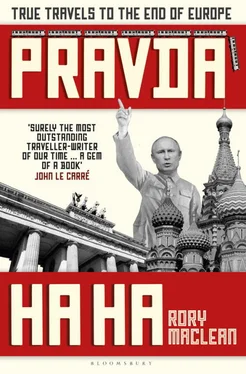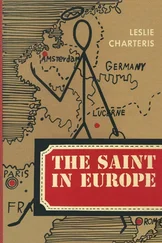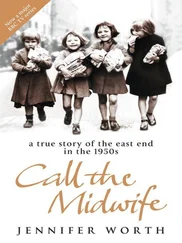Rory MacLean - Pravda Ha Ha - True Travels to the End of Europe
Здесь есть возможность читать онлайн «Rory MacLean - Pravda Ha Ha - True Travels to the End of Europe» весь текст электронной книги совершенно бесплатно (целиком полную версию без сокращений). В некоторых случаях можно слушать аудио, скачать через торрент в формате fb2 и присутствует краткое содержание. Город: London, Год выпуска: 2019, ISBN: 2019, Издательство: Bloomsbury Publishing, Жанр: Путешествия и география, Публицистика, на английском языке. Описание произведения, (предисловие) а так же отзывы посетителей доступны на портале библиотеки ЛибКат.
- Название:Pravda Ha Ha: True Travels to the End of Europe
- Автор:
- Издательство:Bloomsbury Publishing
- Жанр:
- Год:2019
- Город:London
- ISBN:978-1-4088-9652-5
- Рейтинг книги:3 / 5. Голосов: 1
-
Избранное:Добавить в избранное
- Отзывы:
-
Ваша оценка:
- 60
- 1
- 2
- 3
- 4
- 5
Pravda Ha Ha: True Travels to the End of Europe: краткое содержание, описание и аннотация
Предлагаем к чтению аннотацию, описание, краткое содержание или предисловие (зависит от того, что написал сам автор книги «Pravda Ha Ha: True Travels to the End of Europe»). Если вы не нашли необходимую информацию о книге — напишите в комментариях, мы постараемся отыскать её.
Pravda Ha Ha: True Travels to the End of Europe — читать онлайн бесплатно полную книгу (весь текст) целиком
Ниже представлен текст книги, разбитый по страницам. Система сохранения места последней прочитанной страницы, позволяет с удобством читать онлайн бесплатно книгу «Pravda Ha Ha: True Travels to the End of Europe», без необходимости каждый раз заново искать на чём Вы остановились. Поставьте закладку, и сможете в любой момент перейти на страницу, на которой закончили чтение.
Интервал:
Закладка:
I looked at my watch. Twenty minutes, almost to the second. We shook hands and I watched her walk away between the tables of market-makers and FX traders, Lloyd’s underwriters and a pair of Conservative ultras. In Lutyens, the Conran restaurant in the former Reuters building, stock price ticker tape was immortalised in the marble mosaic floor. The City would survive, of that I had no doubt. But at what cost to those outside the Square Mile? In the last financial crisis, millions of jobs had been destroyed by the economic contraction. Massive government intervention transferred wealth from taxpayers to the banks. In Greece and Spain, two out of every five young people became unemployed. Italy suffered the longest recession in seventy years. France’s sovereign debt soared to near 100 per cent. Collapsing tax revenues then forced severe cutbacks in public services, and austerity fuelled discontent across Europe. Yet throughout it all, oil men lunched at West End sushi bars, oligarchs dropped their sons off at Eton and Harrow, and bankers kept hold of their bonuses. Britain’s top executives now rake in on average £4.4 million per year while median national pay hovers around £26,000. I sat back down, and ordered a big glass of wine.
London – dirty, thriving, patched-together London – had long been the centre of my world. Years ago I was drawn to it by its history and openness. I walked its streets by day, collar turned against the winter rain, listening and looking, enthralled by its unfolding story. I loved the city at night: the empty avenues, the clutching couples, the smell of autumn leaves, a single office light glowing on Whitehall. In summer I lay on the grass in Holland Park – never in a pay-for deckchair – or sat under a catalpa tree watching Wimbledon, the television’s extension lead snaking out from my flat. I felt myself at home in the British Library and Canada House. I made movies at Shepperton and Pinewood. I cycled to work at the World Service and Goethe-Institut. I met my wife in SW10. David Bowie invited me to Dingwalls. Now when I return, I retrace the old paths and remember the conversations that I’d had along them, reviving them and the countless other voices that I hear suspended in the ether, above Piccadilly and Soho, on Chelsea Bridge and Highgate Hill, in a dozen languages and at a thousand points from Green Lanes to the Pimlico Tandoori.
After lunch I caught the number 9 bus to Kensington Gardens to stroll beneath the plane trees on Lancaster Walk. On that sunny afternoon I circled the Round Pond and paused for breath under the sweet chestnuts on South Flower Walk. Around me idled Spanish students and Australian au pairs, Kuwaiti non-doms and tight-knit bands of Chinese tourists. Russians – so many Russians – pushed prams, walked dogs and looked over their shoulders before waiting Mercedes-Maybachs whisked them back to Harrods. Nearby, along the Long Water, Southwark Park school kids ate packed sandwiches after their visit to the V&A. SOAS and Alliance Française language teachers sat together on the steps of the Albert Memorial. American expats played softball across West Carriage Drive while a Polish mothers’ group practised t’ai chi alongside the Rotten Row bridleway. Their London – our London – felt closer to New York than Newcastle, more like Paris than Preston. For beneath the continent, tectonic plates had shifted, twisting both it and Europe away from England.
Thirty years ago Europe became whole again. I wrote then that the Wall, the late great division of the world, had passed away as an historical aberration. In Berlin, Prague and Moscow I’d danced with so many others on the grave of dictatorships, in an act of defiance, in a celebration of the resilience of the human spirit. I convinced myself that our generation was an exception in history, that we’d learned to live by different rules, that we were bound together by freedom. I believed that the horrors of the twentieth century – the traumas of which had driven me to become a writer – could never return.
I’ve remade this journey – backwards – to try to understand how it went wrong. I’ve tried to catch a snapshot of ordinary people living in an extraordinary time, in fear in St Petersburg and Donbas, with courage in Tallinn and Warsaw. I’ve seen how Vladimir Putin capitalised on a series of terror attacks – real, dubious or fake – to muscle himself into total power, bringing to my mind the Nazis’ seizure of control of Germany. I’ve watched him grab parts of a neighbouring country with an audacity unseen in Europe since the days of Stalin and Hitler. I’ve understood why he ordered his Sukhoi Su-34 fighters to bomb Syria.
In Germany the flood of refugees – even though now much reduced – has roused extremists. Populists have taken Poland and Hungary by demonising illusory enemies who threatened the ‘purity of the nation’. Finally at home, I’ve witnessed another insular elite – in their quest for power, in their bigotry, with or without pipiska putina – exploit public grievances, mutilate truth and try to hijack democracy.
Under the lime trees, with my notebook open, the emotion took me by surprise, so much so that my eyes stung. For many years I have travelled and lived with certain principles, prizing certain values, with a firm and unwavering belief in the promise of the future. Now I realise it’s us who must fulfil that promise. We kid ourselves if we believe that one day the tectonic plates will simply shift again, that in time the demagogues and xenophobes will retire to Foros, Key West or Clacton-on-Sea, that we need to do nothing. History does not move in repeating cycles; rather it shows us patterns and trends. Change is life, on that at least Jenny and I could agree. Either we shape the future or we sleepwalk into it.
Europe and Britain need a new story, a true story. Perhaps it’s here that it will begin, rather than end. I want to believe that Londoners won’t be told what to do or how to live, that they’ll never accept a stifled media or a single version of reality. Perhaps this open, patched-together capital can show us how to respect rather than scorn our neighbours, can help us to abandon divisive nativist notions as well as grand fancies of empire or a harmonious superstate. Perhaps London – in its diversity and untidiness, in its dissonance – can illuminate for the whole continent (including this island on the edge) how to stop being slaves to illusions.
Where then is the real end of Europe? I once thought it to be a physical place, perhaps the line of the River Oder or the Urals. I realise now that it is not a freak of geography and far more a question of culture and morality, a matter of principles. It’s the point where antique forms of identity clash with modernity, where tolerance, decency and a certain way of thinking end, where openness meets a wall.
Acknowledgements
Some names have been changed, others not. In Russia many of those who I need to thank are protected with a pseudonym. In Germany I am grateful to Prune Antoine, Holger Böken, Corinna Bröcher, Molly Brown, Martin Dammann, Nigel Dunkley MBE, Victoria Gosling, Matthias and My-Linh Kunst, Helena Palsson, Johannes Vogel and Yusra Mardini who took time away from her Olympics training and let me read the proofs of her biography Butterfly . In the Baltics I thank Jason Finch of Turku’s Åbo Akademi University, Kätlin Kaldmaa, Kristjan, Piret and Markus Moora and Keith Shannon, British Ambassador to Latvia. Elsewhere in Europe, the help of Paul-Henri Arni, Clifford Corzatt, Canada’s Ambassador to the EU Daniel J. Costello, Pascal Cuttat of the International Committee of the Red Cross and Jakub Kalensky of the East StratCom Task Force was invaluable.
In the UK, I am grateful to Lady Plaxy and Sir Michael Arthur, Rick Ball, Carole Cadwalladr, Clementine Cecil, David Chater, Susan Crean, Nick Danziger, Michael and Marlie Ferenczi, Ed Jones, Toby Latta, Rachel and Neil Moss, Mary Price, Joanna Prior, Douglas C. Rice, Varvara Shavrova, David Thomson and Marcus Warren. I am indebted to my agent Peter Straus, my editor Michael Fishwick and above all my resplendent wife Katrin (cue fanfare of trumpets) without whom neither Stalin’s Nose nor this book would have been written.
Читать дальшеИнтервал:
Закладка:
Похожие книги на «Pravda Ha Ha: True Travels to the End of Europe»
Представляем Вашему вниманию похожие книги на «Pravda Ha Ha: True Travels to the End of Europe» списком для выбора. Мы отобрали схожую по названию и смыслу литературу в надежде предоставить читателям больше вариантов отыскать новые, интересные, ещё непрочитанные произведения.
Обсуждение, отзывы о книге «Pravda Ha Ha: True Travels to the End of Europe» и просто собственные мнения читателей. Оставьте ваши комментарии, напишите, что Вы думаете о произведении, его смысле или главных героях. Укажите что конкретно понравилось, а что нет, и почему Вы так считаете.

![Эдвард Докс - Pravda ['Self Help' in the UK]](/books/33503/edvard-doks-pravda-self-help-in-the-uk-thumb.webp)










